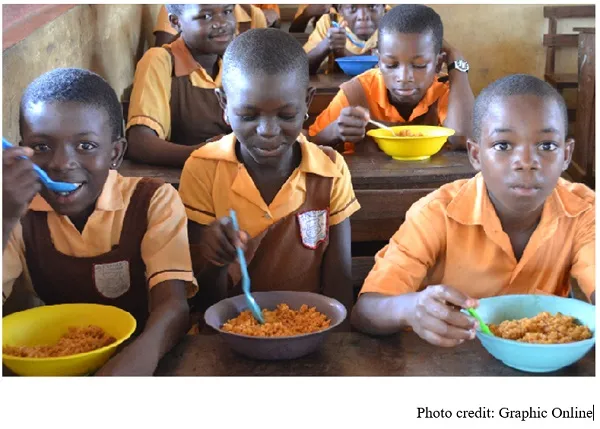In a bid to scale-up and strengthen the Ghana School Feeding Programme (GSFP), the African Union Development Agency (AUDA)-New Partnership for Africa’s Development (NEPAD) has called for a collaboration between government, private sector and other relevant government agencies.
Elaborating on the call for such a collaboration, a Senior Nutrition and Food Safety officer at AUDA-NEPAD, Kefilwe Roba Moalosi, noted that the existence of a strong partnership between government and private individuals such as smallholder farmers will ensure consistent supply of farm produce for the programme.
The organisation’s clarion call was made known at a stakeholder meeting with representatives from the GSFP, the Ministry of Food and Agriculture, caterers, farmers and other key institutions to deliberate on the theme ‘Public-Private Partnerships and Innovative Financing to Enhance Investments in School Feeding Programmes in Ghana’.
Data compiled by the AU report (2021) shows that approximately 65.4 million children in 51 countries now benefit from school feeding in Africa, a massive increase from 38.4 million in 2013.
Despite successes chalked so far, the school meal programme faces several challenges. It is no news the meals served to the children were of moderate quality and quantity, which is detrimental to the programme’s sustainability.
In 2022, the Audit Service discovered that the quantity of food provided by the caterers was insufficient to maintain the students throughout the school day, and not all of the required students were served.
According to the World Food Programme (2023), the absence of school meals affects the cognitive development of children, which contributes to learning difficulties and increases educational inequalities. Hunger, poverty and poor education are interdependent.
When children stay hungry, chances that they will attend school are slim; and without education, their chances of breaking the poverty trap are significantly reduced.
It is against this background that we welcome the suggestions for public-private partnerships to enhance the operation of the programme.










